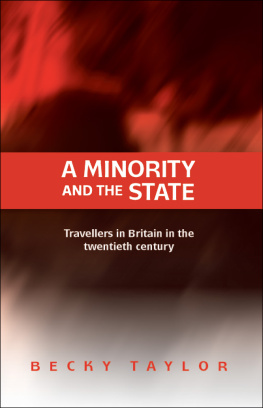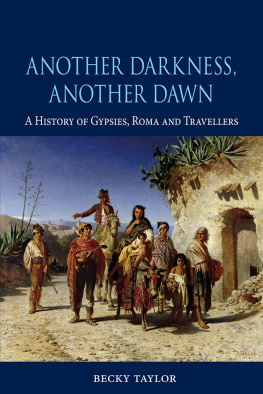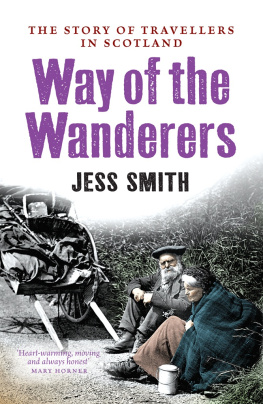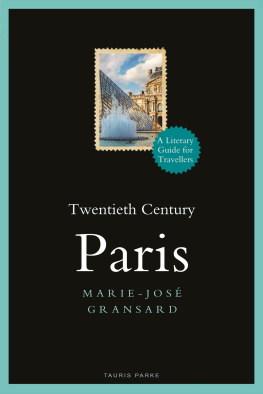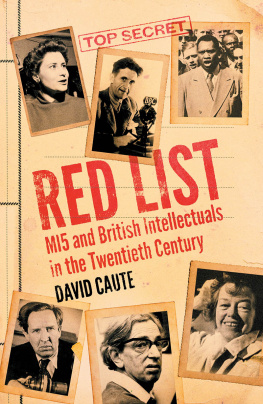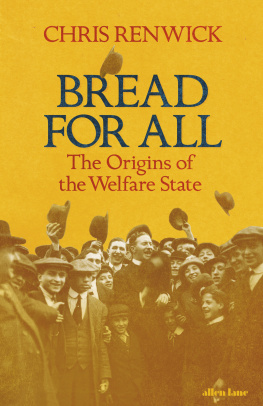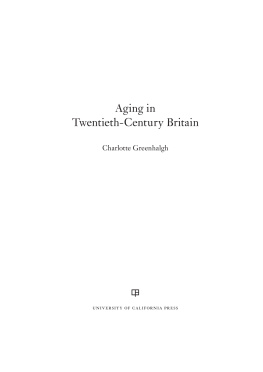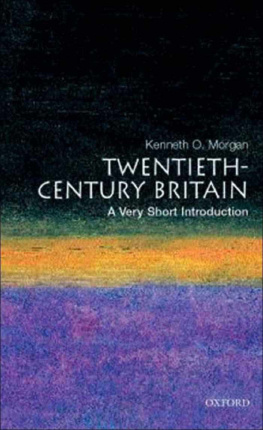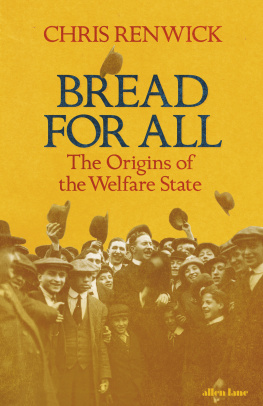A minority and the state
Travellers in Britain in the twentieth century
Becky Taylor
Copyright Becky Taylor 2008
The right of Becky Taylor to be identified as the author of this work has been asserted by her in accordance with the Copyright, Designs and Patents Act 1988.
Published by Manchester University Press
Oxford Road, Manchester M13 9NR, UK
and Room 400, 175 Fifth Avenue, New York, NY 10010, USA
www.manchesteruniversitypress.co.uk
Distributed exclusively in the USA by
Palgrave, 175 Fifth Avenue, New York,
NY 10010, USA
Distributed exclusively in Canada by
UBC Press, University of British Columbia, 2029 West Mall,
Vancouver, BC, Canada V6T 1Z2
British Library Cataloguing-in-Publication Data
A catalogue record for this book is available from the British Library
Library of Congress Cataloging-in-Publication Data applied for
ISBN 978 0 7190 7567 4
First published 2008
17 16 15 14 13 12 11 10 09 08 10 9 8 7 6 5 4 3 2 1
Typeset
by Frances Hackeson Freelance Publishing Services, Brinscall, Lancs
Printed in Great Britain
by The Cromwell Press Ltd, Trowbridge
Preface
My interest in researching and writing about the experiences of Travellers in modern Britain was only in part stimulated by the fact that there was no general history of Travellers for the twentieth century. More than this was the apparent paradox I came across whenever I spoke to someone about my proposed work: everyone always had an opinion about Gypsies, but virtually no one had ever met one, let alone could claim a Traveller as a friend.
Very often the first question people asked was do you mean the real Romanies, rather than the didikais or pikies or tinkers? They would then go on to say that they have nothing against real Gypsies, who live in bow-topped caravans and sell pegs, but these nasty Tinkers in their chrome caravans who come and tarmac drives or lop and top are quite another matter. Similarly, the stereotypes of modern Travellers as dirty, antisocial, thieving and dangerous are trotted out in the popular press on a regular basis, underpinned by the assumption that Travellers are always a problem. Although one of Britains longest established minority groups, they simultaneously suffer racism on a daily basis and are denied an ethnic identity. Unlike other, more recently arrived minority groups, they have not generally been part of the states vision of a multicultural Britain. Instead, they are commonly denigrated as social pariahs who have failed to keep up with march of modernity and now post-modernity. Yet the ubiquitous nature of Gypsies in popular imagination is contrasted sharply with the absence of both personal experience and factual information. How could I explain this disjuncture? This book is an attempt to begin to answer this question.
Acknowledgements
Over the course of the nine or so years I have taken to conduct the research and write what has become this book I have incurred a huge debt to many people. I received help, and often interest beyond the call of duty from archivists and staff at numerous record offices and archives around the country. Of particular assistance were the staff of the Romany Collection at the Brotherton Library, Leeds University and the Scott MacFie Collection at Liverpool University; Steven Hobbs at Wiltshire Record Office; staff at Surrey History Centre and Hampshire Record Office; the archivist at the Public Record Office of Northern Ireland, whose enthusiasm led to an enjoyable and profitable stay; and archivists at Perthshire and the Highlands Record Offices; and Alan from Suffolk mobile library service. The London City Mission welcomed me and allowed me access to their records. Chris Williams flagged up the contents of the Association of Chief Police Officers archive at the Open University, opened the relevant files, shared his office and provided photocopying and coffee. Thank you.
I owe much also, to long-suffering friends and family members who have let me use spare rooms, sofas, floor and car space in the course of my research, or who have provided vital childcare. Many thanks to Penni and David Taylor, my parents, for ongoing help and support of all kinds, Maureen when in Wembley, Alex and Clare in Leeds, Olaf in Sheffield, Glen, Bryony and Nickolai in Cambridge, Duncan and household in Liverpool, Richard J., Zarah, Ray and Sam in Aldershot; Sarah and Justin and Lisa for emergency childcare; and Helen B. for three years of living in her garden and material on the 1994 Criminal Justice Act.
I would like to thank David Feldman for his perspective on the state and incisive analysis when I floundered, and continued support well beyond his original role of supervisor; Pat Thane and Leo Lucassen, whose critical comments enriched both my thinking and the shape of the book; John Stewart for encouragement and advice with the proposal; and Ben Rogaly for consistent interest and genuine support, which included allowing me to encroach into our current project. Thanks also to the barrister specialising in Traveller cases who wished to remain anonymous, and who, as ever, gave generously of his time and expertise.
I owe a debt to the Travellers I met in Norfolk while conducting separate research for Sheffield University, after the main bulk of work for this book had been completed. Visiting and interviewing them by the side of the road, on official sites and in houses, their stories added flesh to what had often been the dry bones of archival material. All too often they confirmed the reality of life at the margins of British society. Thanks also, to the residents of Dale Farm for their hospitality and sociability; and to Roseanna MacPhee who took the time to talk to me about Bobbin Mill.
Finally, I would like to thank Paul, without whom it would not have been possible; and to Jack, who made it neither possible nor easier, but certainly a lot more fun.
Abbreviations
|
|---|
ACERT | Advisory Council for the Education of Romany and other Travellers |
ACPO | Association of Chief Police Officers |
CRE | Commission for Racial Equality |
DoE | Department of the Environment |
HMI | His/Her Majestys Inspector of Schools |
HO | Home Office |
JGLS | Journal of the Gypsy Lore Society |
LCM | London City Mission |
LEA | Local Education Authority |
MHLG | Ministry of Housing and Local Government |
MoH | Ministry of Health |
NFU | National Farmers Union |

